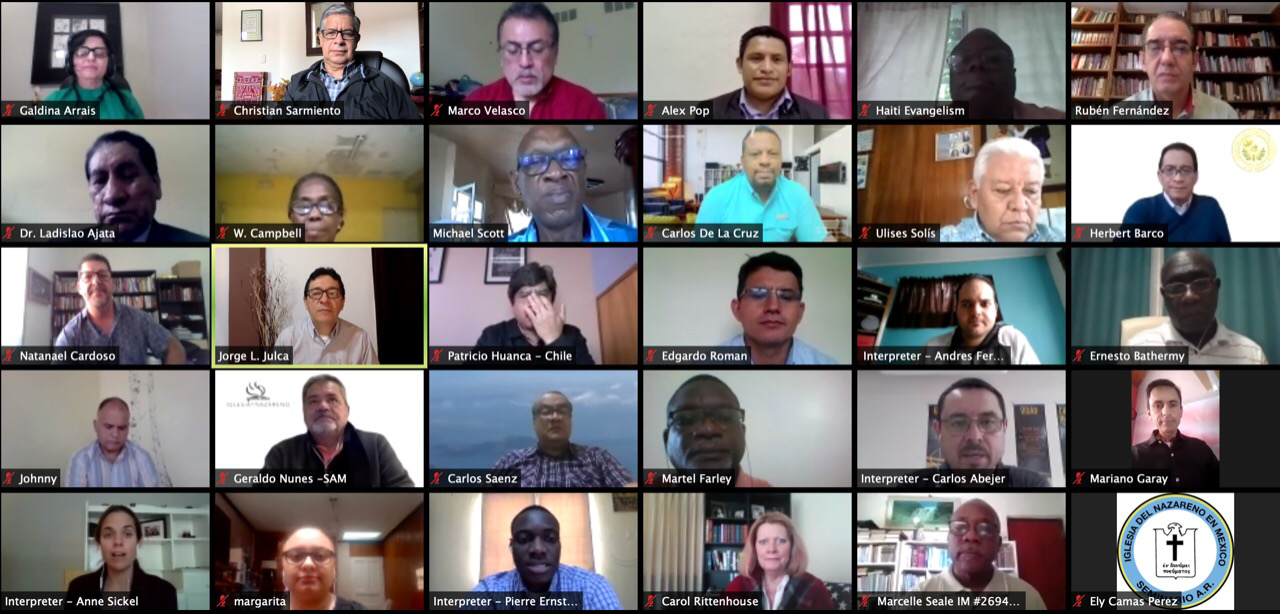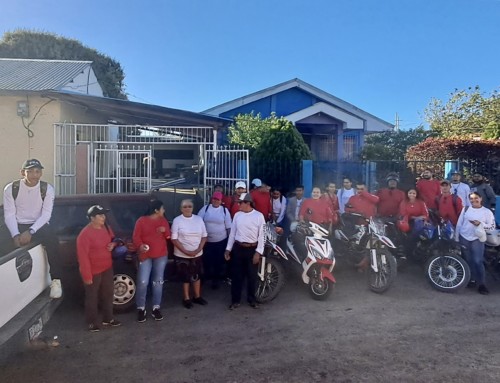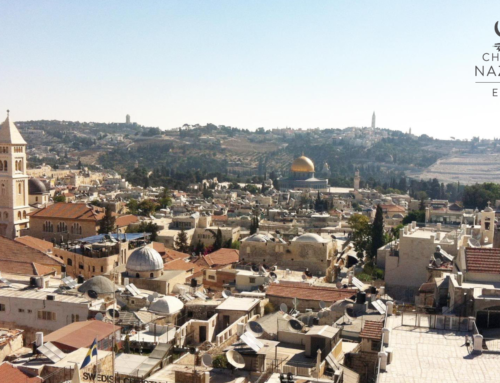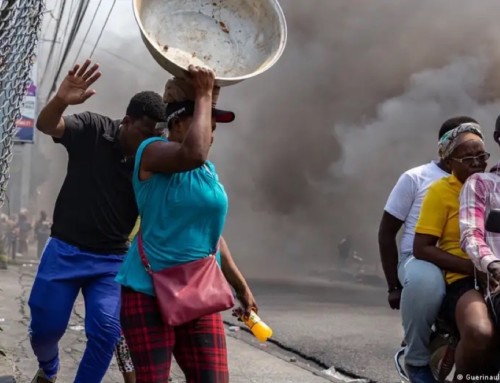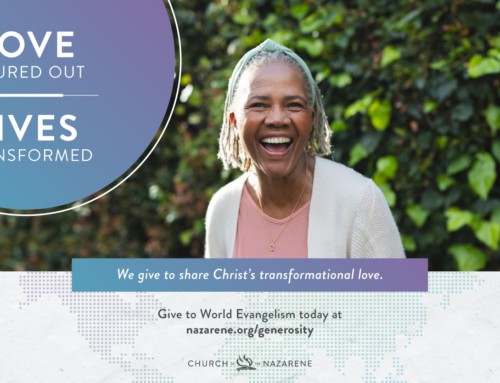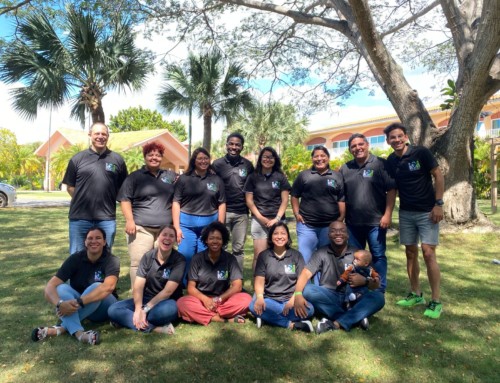On Tuesday, September 29 and Thursday, October 1, 2020 the Mesoamerica Regional Course of Study Advisory Committee (RCOSAC) met with their South America counterpart for their annual meeting. Since 1999, the two regions have joined forces on the basis of shared language, similar culture, and united educational goals to further pastoral training, and have been sharing an inter-regional sourcebook for ministerial development, which serves to approve and implement of ministerial training on the Mesoamerica and South America regions.
In the age of Zoom©, the two committees came together via the Internet to move forward with the business of theological education. While culturally there are some similarities, the two regions are diverse in language where the people speak Spanish, English, French, and Portuguese among other languages and dialects. Fortunately, technology was helpful in this case and simultaneous translation was made available in all four languages and all members were able to have a voice and fully participate in the meetings.
The main task of the meeting was the revalidation of the Inter-regional Ministerial Sourcebook for Ministerial Studies until the year 2024. The agenda for the meeting covered general updates to the Sourcebook, including Manual updates. The second task of the meeting was to review an alternative approach as to how to weigh the “four C’s” (Content, Context, Character, Competency) differently. To this point, the weighting has been based on percentages which the leadership and educators on both regions found difficult to define. They proposed a change to the weighting based on the intensity of focus or emphasis of the four C’s based on the course (minimum, adequate, maximum) – an alternative approach already approved by the International Course of Study Advisory Committee.
Another task before the joint committees was to review revisions to the 30 core courses required for ministerial preparation. Six new courses were introduced which essentially combined and expanded content for existing courses. The intent was to keep the course load at 30 classes in the Course of Study program rather than to expand the number of courses required.
Finally, on Friday, October the 2nd, the Mesoamerica committee reviewed a submission from Caribbean Nazarene College for the revalidation of the Diploma in Ministerial Studies program. The program was explained, reviewed, and approved for presentation to the International Course of Study Advisory Committee during their next meeting.
This meeting of two regions was a feat of technology. It is possible that had Covid-19 appeared 20 years earlier, technology would not have been able to make a meeting between two regions possible. We are thankful to God for this means for furthering the task of educational development on both the MAR and SAM regions.
Dr. Ruben Fernandez, Mesoamerica Regional Education Coordinator shared, “We celebrate this strategic alliance with our sister region of South America we have had throughout these years. This alliance has been reaffirmed and strengthened during these joint meetings between both RCOSACs. The results of our work will benefit innumerable ministers and communities across the continent for many years to come.”
We appreciate the participation of the following representatives of the Mesoamerica RCOSAC: Carlos Saenz (Regional Director), Ruben Fernandez (Regional Education Coordinator), Jorge Cordova (Mexico Field Strategy Coordinator), Carlos de la Cruz (Central Field Strategy Coordinator), Alphonso Porter (Caribbean Field Strategy Coordinator),Pierre Antoine Jacques (Haiti Field Strategy Coordinator), Marco Antonio Velasco (ICOSAC Representative, Michael Scott (IBOE Representative), Annecesse Zamor (Representative Educator), Martel Farley (Representative Pastor), Johnny Calvo (Representative District Superintendent), and Winsome Campbell (Lay Representative).
Dr. Jorge Julca, South America Regional Education Coordinator added, “This meeting has been historic not only because of the technology that was necessary to meet during these days of the pandemic, but because it has allowed us to join forces for the Kingdom. In his will, God has allowed both regions to journey together for many years, to better our educational efforts on both regions. I anticipate that this ministerial relationship will continue for many more years as a powerful resource to accompany people called by God to ministry on both of our regions.
We are also thankful for the members of the SAM RCOSAC represented at the meeting: Christian Sarmiento (Regional Director), Jorge Julca (Regional Education Coordinator), Geraldo Nunes (ICOSAC Representative), Mariano Garay (Representative District Superintendent), Edgardo Roman (Pastor Representative), and Galdina Arrais (Lay Representative).
Special invitees from Mesoamerica included Orlando Seale, President of CNC; Peter Stroude, Academic Dean of CNC; Pedro Luis Urgelles, President of SETENAC; Ernesto Bathermy, President of SND; Ulises Solis, President of STN in Guatemala; Alex Pop, Interim Director of IBN in Guatemala; and Ely Camas, President of SENAMEX.
Special invitees from the SAM region included: Herbert Barco, President of STNP; Patricio Huanca, President of SBN; Ladislao Ajata, President of SENABOL; and Natanael Cardoso, President of STN do Brazil.
These important meetings would not have been successful without the help of our five interpreters: Shelley Webb, Anne Sickel, Andres Fernandez, Ernst Jacques, and Carlos Abejer; our logistical help including Margarita De Trinidad and Carol Rittenhouse; and our technical support team including Manuel Arcia and Esteban Murillo.

